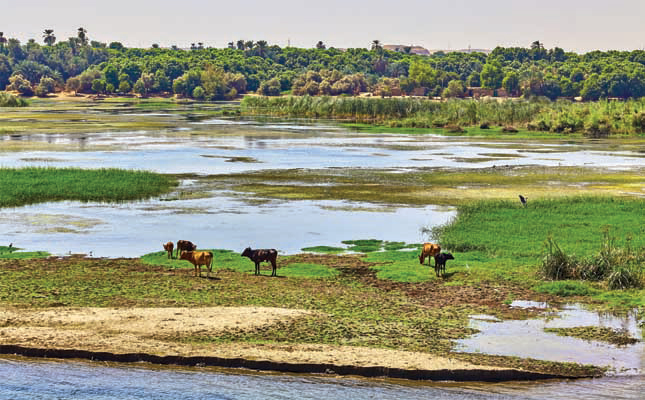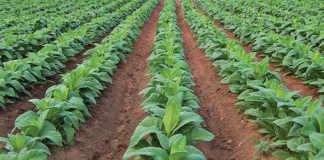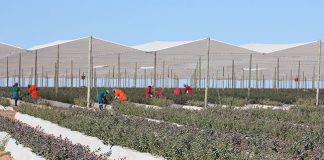
Photo: Adobe Stock
The Nile Delta in northern Egypt, one of the largest river deltas in the world, is under threat from a rapidly increasing population, climate change, and poor management of garbage and sewage pollution.
Egypt’s population is expected to double by 2050, and while the Nile Delta previously supplied almost 90% of the country’s water needs, it can now barely meet them.
“The water situation in Egypt is critical. We have reached a point where the available water quantities set the limits for economic development. We have become one of the driest countries in the world,” according to Mohamed Abdel Ati, the country’s minister of water resources and irrigation.
Farmers in the Nile Delta have been the hardest-hit by rising temperatures and widespread drought conditions, with large numbers abandoning their land to seek work in other sectors.
This has resulted in employment in the agricultural sector dropping from 44% of total employment in 1991 to less than 27% currently, according to media reports.
The increased pollution of the river and the canals it feeds is also increasing pressure on the water needed to irrigate farmers’ fields, with the problem further compounded by rising sea levels resulting in soil salinisation.
Egypt has an arid desert climate and annual precipitation averaging less than 100mm, which makes farmers completely dependent on water from the Nile Delta to irrigate crops such as rice, cotton and wheat.
An estimated 86% of the water in the Nile Delta is still being used for agriculture, with the US$28 billion (about R413 billion) agricultural sector contributing an estimated 12% to the country’s economy, Abdel Ati said in a statement.
However, due to declining water supplies, Egypt has become the world’s largest wheat importer, importing 12,5 million tons of wheat and flour between April 2018 and April 2019.
These imports were 50% higher than the country’s total local production, according to the Foreign Agricultural Service of the US Department of Agriculture (USDA).
“Importing more wheat seems to be inevitable, even as it is still early to reach this conclusion because we are still at the beginning of the harvest season,” said Prof Mohamed Saad Abdel A’ati, of the Department of Agriculture at the University of Kafr al-Sheikh in the Nile Delta.













